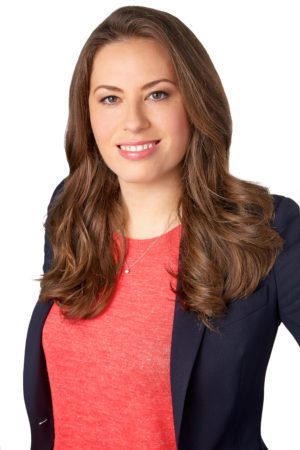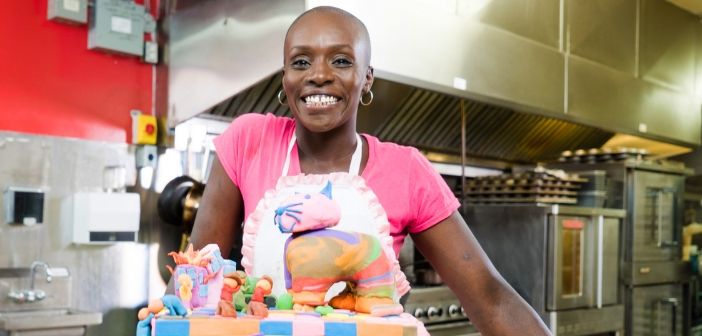In this series of articles leading up to MIPCOM 2019 we hear views from executives around the world on the changing face of the international distribution industry? Here Andy Fry speaks with Blue Ant Media’s Solange Attwood.

Solange Attwood is executive vice-president, international at Blue Ant Media, one of the world’s fastest-growing and most acquisitive factual content companies. Its distribution arm, Blue Ant International (BAI), has a slate of over 3500 hours of premium content across areas including true crime, paranormal and natural history. BAI offers a full-service, boutique approach to its production partners, acting as commissioner, co-producer or financier.
One of the company’s key advantages is its international footprint, with vertical integration across its global production, distribution and channel businesses. While best-known for factual, Blue Ant is now expanding into kids & family and scripted. Key titles at MIPCOM this year include Witches of Salem (4×60), Big Cat Country (6×60), The Killer in my Family (6×60) and Bigfoot (12×15’, scripted animation). Past factual entertainment successes include Prison and Paranormal Survivor.
How would you assess the future for distributors?
As the ‘new normal’ unfolds, the conversation has become focused on investment in direct-to-consumer offerings and the decision whether media companies should enjoy international distribution revenues or holdback original IP/hits for use on their new, proprietary D2C platforms. We have already seen Disney pull many of their titles from Netflix in order to retain rights for their own streaming service. Consolidation and forthcoming launches of studio-backed SVOD services (Disney+, HBO Max), could cause a scarcity of available rights from the usual suppliers and could create a significant opportunity for other distribution businesses. New trends such as the incredible influence of YouTube talent over the younger generation, or the reach and availability of foreign language content both point to the incredible power of new global distribution platforms, while bucking traditional media ecosystems. That said, we are witnessing the big SVOD platforms opening regional hubs, acknowledging the requirement to curate content that is relevant to local audiences. We believe one of the values a good distributor offers is sensitivity and knowledge of the nuances between cultural tastes from country to country. Overall distributors are likely to grow if they have secured access to high-quality content.
What would you say are the biggest challenges facing distributors?
We’ve seen an increase in the cost of acquiring high-quality content and that can present challenges for distributors that are not well-capitalised. With consumers expecting premium fare, distributors are increasingly having to come in early and take on more financial risk. That said, the rewards of being involved in a hit franchise remains the driving force behind what we do.
What is the key to survival as a distributor?
Blue Ant International’s investment strategy is broad and diverse, ranging across traditional fee-based representation, gap financing, co-production and full deficit-financing in the form of fully commissioning new ideas. We are open to all ways of doing business, but must stress the key to our investments is to ensure we have a content offering that will appeal to all of our buyers across platforms. Diversity and involvement in more premium fare are priorities.
How is your core business adapting to the changing landscape?
We are actively pursuing more co-production opportunities. The function of production (development, physical content creation) and the function of distribution (monetisation) are getting more reliant on each other and our ability to tap into a global network is helping us continue to grow across more co-production and a variety of other funding models. Innovation and adapting to meet changing trends is key. As a media business, we are conscious that we must remain relevant to audience and consumer trends, both young and old. Just as producers invest in new development, distributors need to allocate investments towards new and experimental storytelling, adapting technology and be open to creative dealmaking in response to market needs. Responsible investment in innovation is crucial, and editorial remains paramount to our success.
Can you give an example of an unusual deal you have done recently?
We are looking for new investment opportunities, especially co-pros that can leverage our global production network. We are proud of our distribution for our long-running series Best Cake Wins. Season one airs in 65 countries and season two was announced earlier this year and secured a pre-buy from BYUtv in the US. The series is a full, distributor-led commission with Architect Films.

What is the next big thing likely to impact your business?
We think the next big thing that will have an impact revolves around the current conversation of investment in DTC offerings and whether or not media companies should enjoy international distribution revenues or holdback original IP/hits for use on their new, proprietary D2C platforms. The addition of these new platforms should result in lots of opportunity for many of us.




